Class Spring 2021
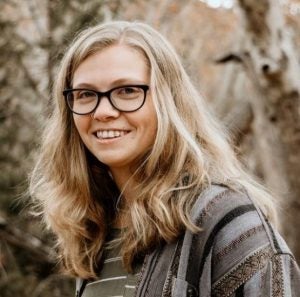
Lydia Downs is a first year masters candidate in the Maritime Studies Program at East Carolina University. She received her bachelors from UMass Boston having majored in Archaeology and History and minored in German Studies. During her Undergrad she did a lot of work with various Native American tribes in New England with the goal of giving them a space to share their own histories. She wishes to continue working with Native tribes to support in telling the history of their people both on land and underwater. IN her spare time she enjoys doing anything that is outdoors including hiking, SCUBA diving, exploring, and hanging out with friends.

Kendra Ellis is a first-year graduate student in the Maritime Studies program. She earned her B.S two years early in Anthropology with a concentration in Archaeology at James Madison University in Harrisonburg, Virginia. She has known that she wanted a career in anthropology ever since the seventh grade. She was influenced by the tv show Bones and wanted to become a forensic anthropologist, however, her first archaeology class changed her view completing when her professor mentioned underwater archaeology. Kendra knew she could finally use her diving certification for something other than fun but is still trying to figure out what she wants to study. Initially, coming into the program she wanted to study the ancient Minoan culture, but now she will work on the lost Diamond City in Cape Lookout during the summer field school.
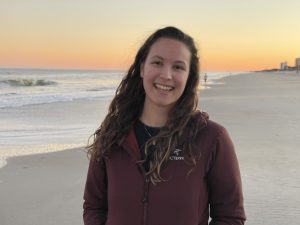
Jillian Schuler is a first-year student in the Maritime Studies program at ECU. Originally Canadian, she completed her BA at the University of Toronto, double-majoring in History and International Relations. Having spent a year of that time studying at SciencesPo in Reims, France, she is fluent in French and has an interest in the naval interrelationships of France, Britain and the United States at the turn of the 19th century. Her background is in museums, having completed an internship at the NC Museum of History in the education department, and maintains an interest in Public History. Though new to the field of archaeology, she is excited to pursue a career that combines her passions for history, exploration and the outdoors.
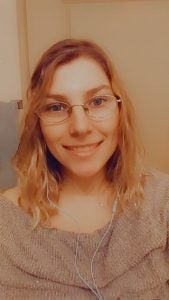
Michaela Hoots My name is Michaela C. Hoots. I spent my undergraduate career at Southern Illinois University Carbondale and graduated with a Bachelor’s in Anthropology, with a focus on Archaeology, and a Minor in Art. I spent my undergraduate interning for the Center for Archaeological Investigations and the SIUC campus curation facility. I feel that my greatest accomplishment from my undergrad was in 2019. A fellow student and I were awarded a grant for research to investigate and document the archaeology of a 19th century African American farmstead within the Miller Grove community in the Shawnee National Forest. I am currently a graduate student of the Maritime Studies program at ECU. My thesis focus is the copper cauldron fragments found on the Queen Anne’s Revenge shipwreck.
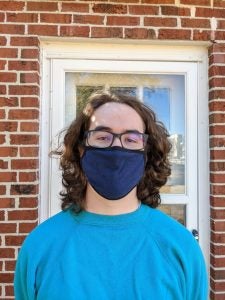
Lou Kelley is a second-year student in the maritime studies program. He received his BA in Anthropology from Michigan State University in East Lansing, Michigan. During undergraduate, Lou worked with a collection from a WWII Japanese American Internment Camp in Dr. Stacey Camp’s lab. His academic interests include historic material culture, public archaeology, and the use of museums in including the public in academic pursuits. His thesis is focused on the maritime industrial development of Washington, North Carolina.
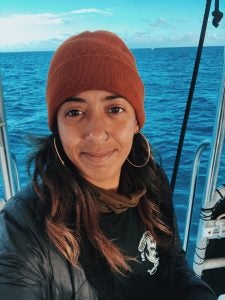
Stephanie Sterling (she/her/hers) is originally from Omaha, Nebraska but has spent the past few years calling Florida, Arizona and Nevada home while working for the National Park Service. She graduated from the University of Nebraska-Lincoln with a B.A in Art History and a minor in Archaeology. While at UNL several experiences solidified her interest in Archaeology as a career and shaped her decision to apply to the ECU Maritime Studies program: a one-credit SCUBA class taken on a whim, field school at Antiochia ad Craǧum in Turkey, and photogrammetric work at the Maya Site of Copan UNESCO World Heritage Site. Not tethered to a region or time period, Stephanie hopes to acquire expertise in mapping, remote sensing and imaging methods while working collaboratively with diverse organizations and amplifying the voices of communities in the telling of their own histories.
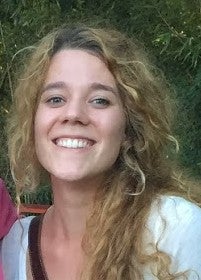
Amber Cabading is a current graduate student in the Maritime Studies program at ECU. She graduated from Texas State University with a BS in Anthropology, minoring in Geography and Art History. During undergrad, she worked on a handful of terrestrial and underwater sites while volunteering for the Prehistoric Research Center and Center for American Studies. Amber’s last year of undergrad was spent interning for the Marine Archeology Program at the Texas Historical Commission (THC). There, she was exposed to the regulatory aspects of maritime archaeology and the importance of protecting maritime cultural heritage. Currently, her interests involve public archaeology, shipwreck survivor archaeology, and Spanish colonialism. Her goal is to build upon and practice an archaeological methodology that centers on engaging with the public in every step of an archaeological process
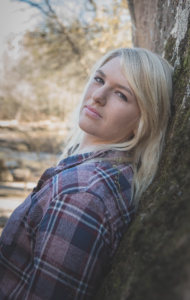
Logan Willis is a first-year graduate student in the History program at East Carolina University and a member of the North Carolina Army National Guard. She recently completed her bachelor’s in History and minored in Coastal and Marine Studies at ECU. While earning her undergraduate she was one of the first to attend the Coastal Studies Institute for a semester at the coast. It was there that she studied and became passionate about accelerated sea level rise and its negative impact on the underwater cultural heritage in the Cape Hatteras region. Her research interests lie in military history, cultural impacts from U-boat activity on the North Carolina coast, World War Two, and the preservation of shipwrecks. Logan hopes to combine her passion for SCUBA diving and history to enhance her understanding of material culture and battlefield archaeology and reveal answers left submerged in the past.
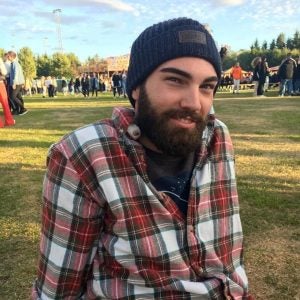
Winston Sandahl was born in Walpole, Massachusetts, and grew up in Powell, Ohio. He received his Bachelor’s degree at the University of Cincinnati with a major in Archaeology, a focus in social complexity, and a minor in Anthropology. Winston completed his field school certificate through the Balkan Heritage Field School in Sozopol, Bulgaria at the Apollonia Pontica site. After the completion of his undergraduate degree, he gained terrestrial experience working for a Cultural Resource Management firm in Northern Kentucky. As far as maritime history goes, he had developed a fascination for whaling and colonial American maritime culture from a young age, spending his childhood at the many colonial museums and historical sites around New England.
